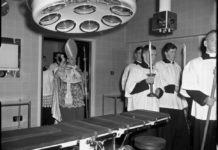Donal Ó Fallúin outlines the origins of the boycott in Ireland’s Land War
When Captain Charles Boycott, a Mayo based land agent, came to Dublin to escape the community backlash against him in late 1880, he was refused permission to stay in a Dublin hotel by the proprietor. Previously, it had taken over a thousand men of the Royal Irish Constabulary, and fifty energetic northern Orangemen, to ensure Captain Boycott would see his harvest of that year saved.
Boycott had fallen victim to a radical new tactic of the Land League movement, when a campaign of isolation was launched against him in response to his exploitation of tenants. Today, he is remembered worldwide, and his surname is synonymous with a political activity still common.
The munitions boycott of the Tan War period, when ITGWU trade union members refused to handle or carry British weaponry or army personnel, is another example of the tactic’s success.
By May of 1920 both railwaymen and dockers were engaged in the boycott, supported by a voluntary fund which amounted to the-then massive sum of £116,000. The boycott, which began on the Dublin docks at North Wall Quay, came merely weeks after the refusal of London dockers to load the SS Jolly George, a ship bound with arms for Russian Czarist forces to fight the Bolsheviks.
The man who brought news of the workers’ refusal to handle military goods to William O’ Brien at Liberty Hall was Michael Donnelly, a Citizen Army veteran of the Easter Rising. The strike spread nationwide at a rapid pace.
In Cork police noted in June of 1920 that two army ships had to be offloaded by soldiers owing to the participation level in the boycott among local men. The killing of a local ITGWU Secretary following an ambush on the police at Dineen in county Clare showed that the British war machine identified trade unionists as a part of the resistance in the country.
The anti-apartheid Dunnes Stores strike and boycott of 1984 is well documented and remembered in song, with Ewan MacColl penning the excellent ‘Ten Young Women and One Young Man’.
While the refusal of Dunnes workers to handle Apartheid produce is well known, it is often forgotten that workers at many other companies did the same. Workers at Best Men’s Wear, Cleary’s and other Dublin companies refused to handle South African produce, and ultimately the locked out Dunnes workers were successful.
From the time of the Land League right through to contemporary union struggle, the boycott remains a key tool of working class struggle.




